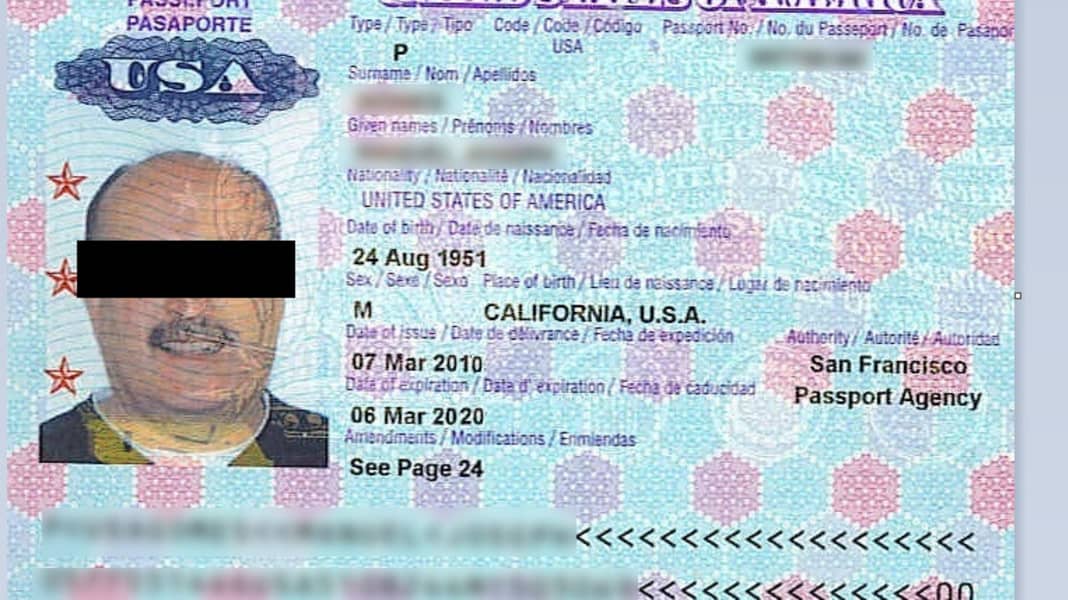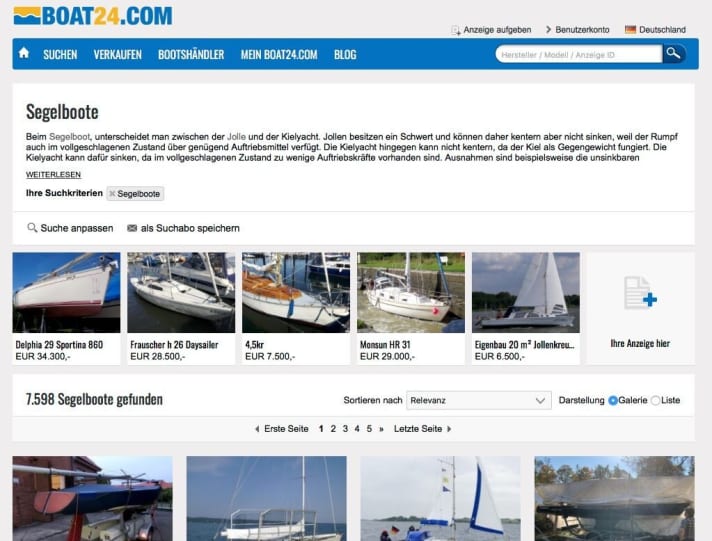
With the growing spread of the internet and e-mails, criminal activities have also increased in the digital world over the years. For example, YACHT has been reporting on so-called "rip deals" since the turn of the millennium. These are scams that target not only, but also boat owners. According to the editorial team's findings, there is currently an increase in activity in this area. Martin Dotti, 38, is not surprised. "It's like this every spring because there are a lot of yachts to be sold at this time," says the founder and co-owner of the used boat portal boat24.com, with which YACHT cooperates.
The method used by criminals can be described relatively quickly. The initial aim is always to build up trust in the seller of a valuable object, in this case a yacht. The supposed prospective buyers usually respond to all kinds of adverts, whether in traditional printed form or on online stock exchanges, by e-mail, which are circulated en masse at lightning speed. Or they make personal contact via a telephone number given in the advert.

The letters sent out are often full of clichés and spelling mistakes, so that a clear-headed person should already be suspicious of the recipient. Dotti says the scammers deliberately choose such clumsy language to separate the critical from the gullible. "They make no extra effort. Those who are naive enough to accept half-baked requests will also be easier to seduce when things get serious."
The criminals' initial aim is to gain the trust of a victim. If a salesperson then responds to the crudely formulated expression of interest, an exchange begins between the two - the first step has been taken.
The method generally works in the same way as the well-known mass e-mails in which completely unknown senders promise the recipient a lot of money if they act as an intermediary for investments, redeem a lottery prize on their behalf or help in some other way in difficult circumstances. What happens next varies, even in the case of boat trading scammers. But in the end, everything always boils down to the seller (!) moving money abroad.
Initially, the favoured method usually worked with cash, the payment of which was made a condition for the purchase for various pretended reasons (commission, black money exchange, lawyer's fee, etc.) before or upon conclusion of the supposed transaction. Years ago, experts estimated the amount of damage caused in this way at over one billion euros per annum. At the time when the scam became fashionable, YACHT once got involved in the initiation of such a deal in Italy for a mock report (issue 9/2003) and subsequently took up the topic repeatedly (e.g. in YACHT 21/2012 ).
The method is also lucrative with a small number of cases
However, handing over cash has a considerable disadvantage for the crooks: there has to be a personal encounter between victim and perpetrator. This is why they are now increasingly persuading their victims to make a cashless transfer. It may sound hard for outsiders to believe that anyone would fall for this, but given the number of mails sent, it doesn't have to be many: even with a huge scatter loss, i.e. if only a tiny minority play along, the method is lucrative.
As far as the used boat trade is concerned, a procedure is apparently currently experiencing a renaissance in which the supposed seriousness of the prospective buyer is confirmed by sending a standardised questionnaire that feigns interest ( similar to what was discussed in the YACHT forum in 2014 ) and a passport file in PDF format. In principle, even sceptical experts are often unable to recognise any forgery features on such "documents" - but that doesn't mean anything. Because such a file is not suitable as proof of identity.

For example, it can be forged in parts, which would not be recognisable in this digital form even with a trained eye, it can represent a stolen ID card or be freely assembled on the computer with unsuspicious names and details. This would also not be recognisable in PDF format. Nevertheless, such a file with a photo and personal details obviously suggests to some people who want to sell their boat that the sender is worthy of honour - and that they can be easily identified in case of doubt.
In several current cases known to YACHT in connection with sales offers for very different boats, the alleged prospective buyer pretends to be US-American with such a "document". According to the police, to whom YACHT has submitted the currently circulating file for examination, the "passport" used is easily recognisable as fake by experts.

In any case, it is advisable to treat any seemingly strange reactions to used boat adverts with a healthy dose of suspicion.
You can read an interview with online platform operator Martin Dotti on this topic and his prevention measures in YACHT 14/2019, which will be in stores from 26 June.
As a used boat seller, do not get involved in transactions that appear suspicious for the following reasons:
- The interested party contacts us from abroad and cannot provide a verifiable address.
- The prospective buyer does not negotiate the price or even offers more than you are asking.
- The prospective buyer doesn't care about the details of the yacht, he doesn't want to see it or sail it.
- The prospective buyer tells implausible stories about his living conditions and his unconditional interest in buying the yacht.
- The interested party demands unusual methods of payment (cash, advance bank transfers, currency exchange, etc.).
Victims should contact the Competence Centre for Boat Crime of the police in Constance, phone: 07531 / 5902 - 301; e-mail: kbk@polizei.bwl.de.

